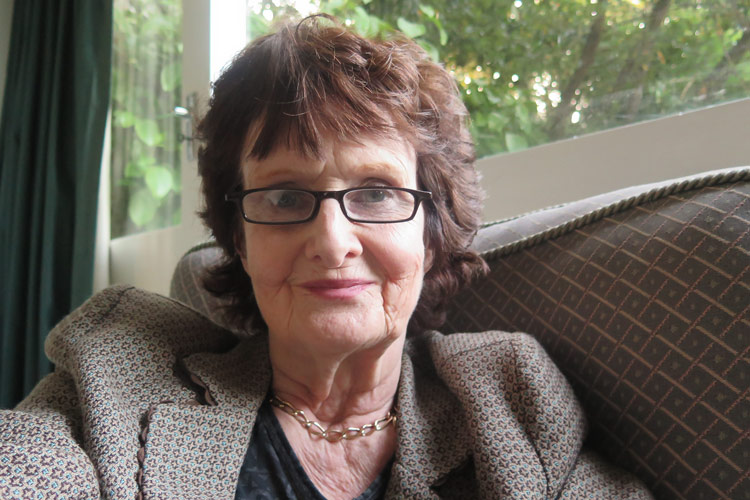How an eminent Stanford poet saved an innocent man from hanging
Friday, May 21st, 2021
Jazz scholar Ted Gioia is one of the latest internet refugees who have taken harbor at Substack, a subscription newsletter service for long-form blogging. He’s launched his column, Culture Notes of an Honest Broker, with a bang. In one of his posts, he revisits the 1933 death of Allene Lamson, whose husband David Lamson, a sales manager for Stanford University Press, was charged with the murder. Lamson was sentenced to hang, and imprisoned for three years in San Quentin prison before he was exonerated.

“The case was based entirely on circumstantial evidence,” Ted writes. “A pipe found in the trash might be a murder weapon, although that was never more than hypothesis. His pregnant housekeeper might be Lamson’s lover—which seemed plausible until she gave birth to a redheaded baby who looked just like her redheaded boyfriend. Another woman in Sacramento might be Lamson’s mistress, but the evidence there never held together, and the prosecution didn’t dare put her on the stand during the ensuing trial. Above all, Larson’s character and personality—described by many acquaintances as ‘kind’ and ‘considerate,’ especially in his relationship with his wife—might be a charade, a violent, angry man hiding behind a gentle exterior.”
The hero of the story was Stanford poet-critic Yvor Winters, who investigated the case and wrote a pamphlet, The Case of David Lamson, that was instrumental in the ruling that the frail Allene Lamson died an accidental death. As Ted notes, the case, which dominated the news, was also an influential event for Winters’s wife, the poet Janet Lewis. The case led her to write The Wife of Martin Guerre (1941) and two other novels featuring “cases of circumstantial evidence.” I’ve written about her here and here.
Nowadays, Yvor Winters is too little known, though he was a powerful and influential critic and a notable poet. Ted writes:

“When I studied literature as an undergraduate at Stanford, Winters’s name was still said with awe and respect, although he had been dead for almost a decade at that point. But, more than any other individual, Winters had put literary studies at Stanford on the map. His work as poet and critic was known and cited all over the world, conveying an authority and erudition that none of his peers in the Department of English could match in those days. It’s important to recall that Stanford wasn’t yet an ultra-elite institution when Yvor Winters joined the faculty in 1934. And it definitely wasn’t a university associated with poetry. But he changed all that—a list of writers whom Winters taught or mentored would eventually include Edgar Bowers, Thom Gunn, Donald Hall, Philip Levine, Donald Justice, N. Scott Momaday, Robert Pinsky, Robert Hass, J.V. Cunningham and Kenneth Fields. People even talked about Winters as the progenitor of a whole school of poetry.”
“So I heard Winters’s name often during my student days. But no one ever told me about his involvement in a tabloidesque murder case decades before—or that he got a man off of Death Row. I only learned many years later about this strange crime story. And the reason for this silence, I now realize, is that many of Winters’s peers mocked and derided his fixation with a murder case and subsequent decision to play the role of amateur private eye. He was almost a laughingstock for this obsession—and it undermined the dignity both of Winters the professor, the Department of English, and the entire University.”
Read the whole story, “When a Famous Literary Critic Unraveled Silicon Valley’s Most Sensational Murder Case,” chez Ted Gioia here. (And if you go to Patrick Kurp‘s blog, Anecdotal Evidence, you can read Winters’s poem for Lamson’s heroic attorney.)








 Prefer the Wilkes who looked into that face,
Prefer the Wilkes who looked into that face,


